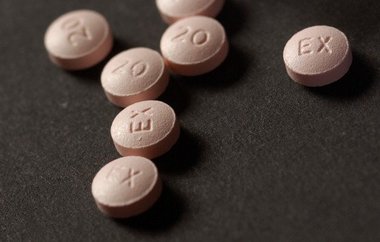The following is an editorial written Steve and Elaine Pozycki, who serve on the Partnership for a Drug-Free New Jersey's Board of Trustees. The editorial appeared in The Star Ledger and NJ.com
Prescription drug abuse is exploding in New Jersey and throughout the nation, leading to too many ruined lives and avoidable deaths. As a State Commission on Investigation report issued last summer documented, the largely unchecked overprescribing of opioid pain relievers, combined with the inexpensive availability of the original opiate, heroin, is creating a public health and law enforcement problem, the scale of which we are only beginning to understand, let alone address.
Now is time to tackle this challenge with a comprehensive approach that puts prevention first.
One in six American teenagers have used a prescription drug to get high. Over the period of a month, roughly 7 million Americans use prescription drugs for nonmedical reasons. Drugs are now the No. 1 accidental killer in the United States, with the vast majority of deaths caused by prescription drugs. There is now one death every 24 minutes.
The overwhelming majority of people who abuse prescription drugs get them from family and friends. These drugs are extremely dangerous and serve as a gateway to heroin. One in 10 Americans have taken a prescription drug that was prescribed for someone else, and 60 percent have taken painkillers, according to a recent Reuters/Ipsos Poll.

Image credit: NJ.com
The increase in prescription drug abuse stems from a dramatic rise in the number of prescriptions written for opioid pain relievers, such as OxyContin, and an even larger increase in the dosages given without accompanying safeguards and education. In 2009, 257 million prescriptions were written — a nearly 50 percent increase in just 10 years. Further, dosages have increased over roughly the same 10-year period by more than 400 percent.
This step-up in availability, combined with an increase in the medicine’s potency, has triggered an epidemic of abuse. In New Jersey, the epidemic is compounded by the easy availability of heroin, even in the suburbs. When people run out of ways to get pills, they often turn to heroin, the relatively inexpensive street-level alternative, which satisfies addicts’ strong cravings and provides a similar high.
Contrary to what some newspaper editorial boards have argued, treatment is not the answer. While it should be improved and made more widely available, even high-quality treatment is a hit-or-miss proposition that does not permanently solve the problem for most people.
Instead, prevention should be the focus: dramatically reducing the number of people who become addicted in the first place. In New Jersey, 7,238 people were admitted to state-licensed substance-abuse facilities in 2011, a threefold increase over the previous year. That is simply too many.
New Jersey has stepped up prevention efforts, launching a prescription monitoring program to identify prescription mills and patients who are doctor-shopping, as well as increasing law enforcement efforts.
That’s a good start. But we must do far more. This includes stepped-up education about prescription drug abuse for kids and parents, required continuing education of doctors in how to prescribe opioid painkillers to minimize the risk of addiction, and an all-out effort to shut down the pill mills and other criminal operations.
We don’t need to reinvent the wheel. The SCI report outlined a series of well-researched recommendations. New York recently passed a new law, I-STOP, which can serve as a model for how to strengthen New Jersey’s prescription monitoring program. And New York City mandates that emergency rooms in all 11 of the city’s public hospitals no longer prescribe long-acting opioids, such as OxyContin, and that they limit prescriptions of any opioids to no more than three days. New Jersey should require all hospitals to adopt this policy.
We can solve this problem. But we must give it the attention and resources it deserves. Every day we delay, we lose more of our kids.